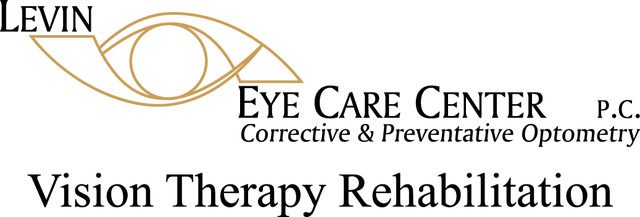
When to Visit Your Eye Doctor in Whiting, IN for Dry Eyes
Dry eyes are more than just an inconvenience—they can significantly impact your quality of life. If you’ve been experiencing persistent dryness, irritation, or discomfort in your eyes, it’s essential to recognize the signs that point to something more serious. At Levin Eye Care Center, our team understands the frustration that comes with dry eyes, and we’re here to help you determine when it’s time to seek professional treatment.
Let’s explore the causes of dry eye, the symptoms you should watch for, and how seeking help from an eye doctor in Whiting, IN, can restore your comfort and eye health.
5 Common Causes of Dry Eye: Why Are My Eyes So Dry?
There are several reasons why your eyes might feel dry. Dry eye occurs when your eyes don’t produce enough tears or when the tears evaporate too quickly. Here are some of the most common causes of dry eye:
1. Environmental Factors
Your environment plays a significant role in the health of your eyes. Wind, smoke, and air pollution can irritate your eyes and cause tears to evaporate faster. Indoor environments with air conditioning, heating, or fans can also dry out your eyes. People who spend a lot of time in dry, arid climates are more prone to dry eye, especially if they don’t take precautions to protect their eyes from the elements.
If you frequently go outdoors or work in environments with poor air quality, it’s important to take extra steps to protect your eyes. Wearing sunglasses, using a humidifier indoors, and avoiding smoke-filled areas can help reduce the environmental impact on your eyes.
2. Aging and Hormonal Changes
As we age, tear production tends to decrease naturally. People over the age of 50 are more likely to experience dry eye symptoms because the tear glands don’t produce as many tears as they once did. In addition, post-menopausal women are especially susceptible to dry eye due to hormonal changes. Estrogen levels impact tear production, and when those levels drop during menopause, many women notice an increase in dry eye symptoms.
3. Increased Screen Time and Digital Eye Strain
In today’s digital age, many spend long hours staring at computer, phone, or tablet screens. This extended screen time is one of the leading contributors to dry eye. When we focus on screens for extended periods, we tend to blink less, which reduces tear production and allows our eyes to dry out more quickly.
Taking frequent breaks from screens, practicing the 20-20-20 rule (looking away from the screen every 20 minutes for 20 seconds at something 20 feet away), and ensuring your screen is positioned correctly can help minimize dry eye symptoms caused by digital eye strain.
4. Medication Side Effects
Several medications can cause or worsen dry eye by reducing tear production. Common culprits include antihistamines, antidepressants, blood pressure medications, and decongestants. If you’ve started a new medication and noticed an increase in dry eye symptoms, it’s worth discussing this with your doctor. They can adjust your prescription or recommend alternative treatments to alleviate your discomfort.
5. Medical Conditions and Autoimmune Diseases
Certain medical conditions are also linked to dry eye. Autoimmune disorders such as Sjögren’s syndrome, rheumatoid arthritis, and lupus can interfere with the body’s ability to produce sufficient tears. People with diabetes, thyroid problems, or blepharitis (inflammation of the eyelids) are also more likely to develop dry eyes.
If you have any of these conditions, it is essential to monitor your eye health closely and work with your eye doctor to manage your symptoms.
Symptoms That Indicate a Serious Dry Eye Problem
Here are vital signs that should raise concern:
- Persistent Irritation and Redness: Consistent dryness, redness, and irritation, even after using eye drops or adjusting your environment, could indicate a more serious issue, possibly due to poor tear production or tear quality. Left untreated, it can cause long-term damage to the eye’s surface.
- Blurry or Fluctuating Vision: Dryness affects the smoothness of the cornea, leading to blurry or fluctuating vision. This makes it hard to focus and can become more persistent if not addressed.
- Sensitivity to Light (Photophobia): Increased sensitivity to light can cause discomfort in bright environments and may interfere with daily tasks like driving or working. This symptom can indicate worsening dry eye.
- Difficulty Wearing Contact Lenses: If contact lenses that were once comfortable become irritating or painful, dry eye could be the cause, as contacts limit oxygen flow to the cornea and prevent natural tear distribution.
Why You Should See an Eye Doctor for Dry Eye
Suppose you’ve been experiencing any of these symptoms or feel your dry eye is worsening. In that case, it’s critical to consult a professional. We specialize in diagnosing and treating dry eye at Levin Eye Care Center, your trustworthy eye doctor in Whiting, IN, with a personalized treatment plan for lasting relief.
Left untreated, chronic dry eye can lead to more severe issues, including corneal damage, infections, and impaired vision. Early intervention is crucial in preventing complications and improving your comfort.
Find Relief with Your Eye Doctor in Whiting, IN!
Dry eye can be more than just a nuisance—it can affect your vision and overall quality of life. Contact Levin Eye Care Center today to schedule an appointment with our experienced eye doctor in Whiting, IN. Our team is here to help you find relief and improve your eye health with the latest treatments.
Visit us at Levin Eye Care Center and take the first step toward clearer, more comfortable vision.
